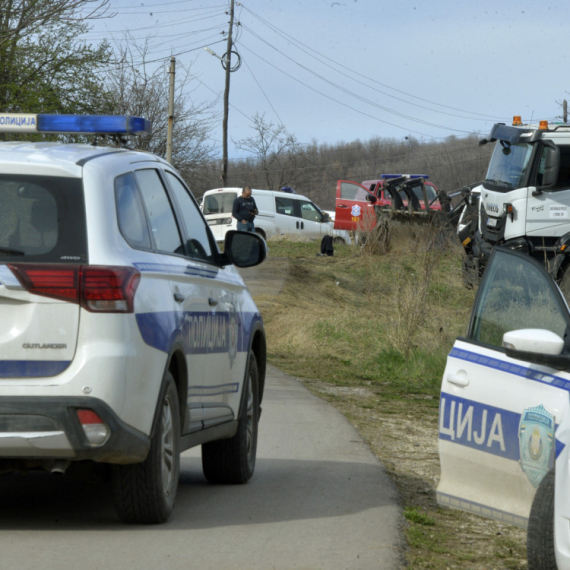Charges yet to be pressed in Kolubara affair
Even though the Serbian Power Comany (EPS) internal control has determined that there was abuse in the Kolubara coal mine, no charges have been raised yet.
Friday, 08.04.2011.
11:45

Even though the Serbian Power Comany (EPS) internal control has determined that there was abuse in the Kolubara coal mine, no charges have been raised yet. EPS Director Dragomir Markovic, who has formed a special internal control commission, is not giving any interviews because he does not want to influence the police investigation. Charges yet to be pressed in Kolubara affair The commission has confirmed the allegations revealed by B92 investigative program Insajder, that pointed to irrational spending in public companies. The report has confirmed that about EUR 70mn was unjustifiably spent from 2005 until 2009. Aside from the facts in the report, it is unknown what the consequences are. Markovic, who is in charge of the Kolubara, has been refusing to speak to B92 for months. He answered some questions in writing, but it is unclear what concrete steps he made in order to punish the persons who are responsible. Some of them are still holding high positions in the company. “After the expert group's report I gave certain orders to directors of subsidiaries and the way the Kolubara director is implementing them is visible in the company's business report that you are also familiar with. Work of auxiliary mechanization has been reduced to planned limits,“ Markovic said in a written response. Economic analyst Dragovan Milicevic says that the public company director had several ways of punishing the responsible persons – salary reduction, suspension and even dismissal. He says that the report published on the EPS website does not contain any recommendations for removal of irregularties. Aside from the special commission which practically investigated media reports on abuse, the EPS, just like any other public company has its own permanent internal control. The purpose of those bodies, however, is questionable since public usually finds out about abuses in state-owned companies after management has been replaced. An example is former Serbian Railways Director Milanko Sarancic who is currently on trial for incurring EUR 1.2mn worth of damages by purchasing train engines from Sweden and Slovenia. Serbian Railways Director Milovan Markovic claims that the internal control is doing a good job now but that he does not know whether there was any report that suggested that there had been irregularities in the former director's work. Aside from the internal control, a supervisory board and board of directors should also monitor public company directors. Board members and directors are chosen by political parties.
Charges yet to be pressed in Kolubara affair
The commission has confirmed the allegations revealed by B92 investigative program Insajder, that pointed to irrational spending in public companies.The report has confirmed that about EUR 70mn was unjustifiably spent from 2005 until 2009. Aside from the facts in the report, it is unknown what the consequences are.
Marković, who is in charge of the Kolubara, has been refusing to speak to B92 for months.
He answered some questions in writing, but it is unclear what concrete steps he made in order to punish the persons who are responsible. Some of them are still holding high positions in the company.
“After the expert group's report I gave certain orders to directors of subsidiaries and the way the Kolubara director is implementing them is visible in the company's business report that you are also familiar with. Work of auxiliary mechanization has been reduced to planned limits,“ Marković said in a written response.
Economic analyst Dragovan Milićević says that the public company director had several ways of punishing the responsible persons – salary reduction, suspension and even dismissal.
He says that the report published on the EPS website does not contain any recommendations for removal of irregularties.
Aside from the special commission which practically investigated media reports on abuse, the EPS, just like any other public company has its own permanent internal control.
The purpose of those bodies, however, is questionable since public usually finds out about abuses in state-owned companies after management has been replaced.
An example is former Serbian Railways Director Milanko Šarančić who is currently on trial for incurring EUR 1.2mn worth of damages by purchasing train engines from Sweden and Slovenia.
Serbian Railways Director Milovan Marković claims that the internal control is doing a good job now but that he does not know whether there was any report that suggested that there had been irregularities in the former director's work.
Aside from the internal control, a supervisory board and board of directors should also monitor public company directors. Board members and directors are chosen by political parties.





























Komentari 0